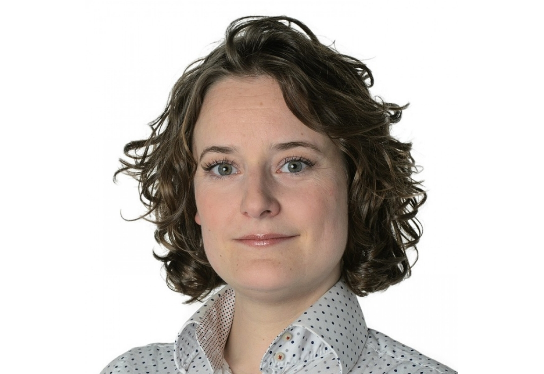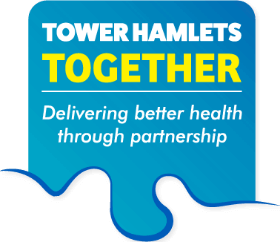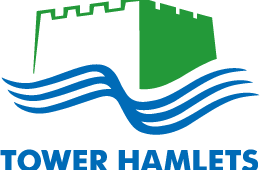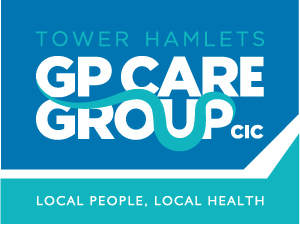Amy's Monthly Briefing - November - December 2021
The borough’s vision of a seamless health and care experience for its citizens.

Over the past few months, there's been lots of conversations about the future design of our borough partnership within the North East London Integrated Care System
This briefing covers the November and December THT Exec Boards - sorry for getting a little behind! I also wanted to acknowledge what an extremely difficult time it is once again, when staff across the partnership are already burnt out from nearly two years of navigating Covid. I'm in awe of everyone's tremendous efforts to support our community, and personally grateful to have had my booster in the past week. Thank you, I hope you get at least some respite over the festive period, and wish a Merry Christmas for those celebrating.
Over the past few months, there's been lots of conversations about the future design of our borough partnership within the North East London Integrated Care System. Current proposals are to retain THT, strengthen Primary Care Network (PCN) and Healthwatch leadership within it, and evolve the THT Board to incorporate the new committee, which would have delegated functions from the Integrated Care Board (ICB). Details are still being negotiated, but Board members agree this is an exciting moment to strengthen our partnership further and drive faster and deeper integration, led locally at both borough and locality levels. We're working through the legal aspects and also how to strike the right balance between new technical duties and space for transformational thinking including user voice.
At the November Board, the borough's Somali Taskforce presented their recent Task and Finish project on mental health. Through engagement with expert stakeholders, community organisations and service users, they did an in-depth review of four areas: Somali men; autism including the impact on parents and carers; Alzheimer's and dementia including the impact on families; and young people. The strong message was that while we have fantastic services locally, often they are not accessible to the Somali community. The Taskforce wants partners to focus on building trust, improving data and targeting, creating culturally sensitive services, adopting a holistic approach that incorporates faith and culture, adapting to the needs of an oral community, and addressing the significant under-representation of Somali staff in our workforce. We asked about the breadth of community engagement and opportunities to contribute to the next steps, with many offers to meet made by decision-makers.
We also reviewed THT's quarterly finance and performance reports in November, considering the system picture and each partner's position in some detail. Overall, we face a £6m overspend, largely driven by learning disability and physical disability care packages and Covid discharge costs. There remains an uncertainty about future efficiency expectations particularly for NHS providers. Challenging system pressures include: hospital discharge still not happening quickly enough despite good partnership working; issues with in-hospital flows from front door to step down to discharge; larger social care packages than ever before suggesting people are sicker; waiting lists across all NHS services; increasing front door contacts and demand for adult social care; increasing number of children looked after and of those with Education, Health and Care Plans. The Board agreed to add more metrics on homelessness, mental health and children/young people's health to the performance reports.
December's Board focused on trauma-informed practice and the borough partnership within the ICS. We heard about the work of the trauma-informed community of practice across Tower Hamlets, supported by government funding for mental health promotion and prevention. Mina, a service user and trainer, spoke powerfully about the impact of care which is not trauma-informed - including judgemental attitudes from practitioners, re-traumatisation by re-telling your story including details of self-harm even when they're in your notes, lack of autonomy or transparency over your care plan, failing on the basics like clinics running on time. Trauma-informed practice is a shift in thinking and acting, not just training - being "facilitators of recovery, not controllers"; combining community, cultural and clinical responses; moving from a helper/helpee dynamic to mutuality and power sharing.
The Board discussed the importance of recognising how staff and providers are also traumatised, especially given what many have seen in the pandemic, and that trauma-informed practice must go hand in hand with our inclusion and anti-racism work. Mina left us with a strong call to action that trauma-informed care training should be mandatory, "as it's a health and safety issue". As a next step, the Board agreed to embed trauma-informed practice within our workforce and OD strategy, staff wellbeing approach, and future THT engagement events. We will also bring this conversation into further work that a Board sub-group is doing with equality charity brap in the new year, to interrogate and strengthen our anti-racism action plan. I look forward to reporting back on that in 2022.








